Regarding a healthy diet, dogs are the same as humans. People get diabetes, heart disease, and obesity due to unhealthy eating habits. The same happens to dogs. Like people, dogs must have a nutritious, balanced diet to have the best chance of being disease free. Healthy fruits for dogs also ensure an animal has a balanced nature.
It is essential to remember that a dog living in the wild would eat raw meat that includes bone, marrow, fat, hide, and hair. Like humans, dogs are omnivores. It means they eat meat but also need to eat fruit, vegetables, grain, and even fish.
When you think of a good diet, imagine one meal with fresh fruit. That might be good for us, but it’s not the same for our dogs. So, the question is can dogs eat fruit?
Well, fruit is not off the menu entirely – packed with vitamins, antioxidants, and fiber, it can be an excellent snack choice for our dogs. But it’s also high in sugar, so restraint is necessary for long-term weight control.
Moreover, some fruits can upset your dog’s digestive system, so it’s essential to know your stuff before you stock up on the fruit bowl.
If prepared precisely, there are some fruits that can be tasty, healthy snacks for dogs.
Fruit dogs can eat:
Bananas
Bananas stuff a lot of nutrition into a small dog-friendly package. They contain fiber, potassium, beta-carotene, lutein, vitamins C and E, and selenium. Remove the peel, and serve in restraint to avoid giving your dog too much sugar.
Apples
Apples make a delicious doggy snack as they are low-fat and fiber. However, only conform to the skin and flesh because apple pips have traces of cyanide, a toxic substance to dogs.
Blackberries, Blueberries, and Raspberries
Bries are excellent nutritional all-rounders and high in vitamins C, E, and K. They are packed with antioxidants like anthocyanin. Blueberries have good levels of B vitamins like B6 and folate.
Moreover, blackberries are a great source of potassium and magnesium. Meanwhile, raspberries are sweet and low calorific – these are great for dogs on a weight management diet.
Pears
High in vitamin C and packed with fiber, pears are another safe snack choice. But as with apples, removing the cyanide-carrying pips is essential before putting a pear near your dog’s bowl.
Strawberries
Strawberries are a complete package of health-boosting antioxidants. But strawberries are also high in sugar as compared to other berries, so serving them in small amounts is essential. Frozen and fresh are the same nutritionally, so notice what your dog likes.
Tomatoes
Tomatoes are full of vitamins and refreshing or are safe to serve in moderation. But it’s essential to wait until they’re fully ripe, as tomatoes contain low levels of solanine, a poisonous mixture that can affect the digestive and nervous systems. Moreover, the levels of toxins decline as the fruit ripens.
Apricots, Plums, and Peaches
These squishy fruits are safe for your dog, but the stone is toxic, so never serve them whole. Nevertheless, all three are bursting with antioxidants – such as chlorogenic acid – and are rich in potassium, vitamins C, E, K, and B.
Which fruits are toxic to dogs?
At the same time, lots of fruit can play a part in a nutritive dog diet; others are a no-go. Fruits you shouldn’t give to your dog include:
Citrus fruits
Lemons, Oranges, limes, and grapefruit are all worth avoiding. The citrus extract is removed for its antioxidant properties. Thus, it lacks the necessary oils and toxic compounds, which means it can be used in the food without negatively affecting the dog. However, the whole citrus fruit can cause digestive upset if provided in large amounts.
Dried fruits
The sugars get concentrated when the fruit is dried—dried fruits like figs, dates, and apricots are too high in sugar for dogs. The fresh versions are mostly fine, except for grapes, which are unhealthy for dogs.
Raisins, grapes, and currants
Nobody knows why these fruits are so dangerous for dogs – the leading theory is that they can include traces of toxic mold in dogs. Whatever the cause, they’ve been linked to signs as severe as kidney failure, so they must be avoided.
Hedgerow berries
Some berries are safe and nutrient-packed for dogs, but hedgerow berries are dangerous for your dogs. Moreover, rowan, juniper, holly, and elderberries are poisonous, so if you see your dog making a beeline for a berry-dotted hedge, moderate.
How can you add fruits to your dog’s diet?
As with any meal you introduce to your dog, slow and steady is the most suitable method. Tips for counting fruits in your dog’s diet include:
Make sure it’s dog-friendly
Before offering a new fruit to your dog, it’s the best idea to double-check it’s on the index of foods dogs can eat. There are many rarities and serving points to remember, so even if you think you know, it’s always worth another look.
Prepare it carefully
Carefully wash or remove the peel from any fruit you give your dog – just the same as you would if you were eating it yourself.
Check for mold
Only allow your dog to eat fresh fruits – moldy fruit is bad for everybody. If you have fruit trees, keep your pet away at harvest time so they don’t eat spoiled or infested fruit that falls on the ground.
Introduce it gradually
Even if fruits are safe to give your dog, serving a full bowl straight away can lead to a sore stomach. Instead, give your dog a small piece to avoid undesirable reactions, then rise to a snack-size amount over time.
Serve in moderateness
Fruit can be sufficient for your dog in small amounts, but serving too much can have a negative effect. Be extremely careful with high-sugar fruits such as bananas and strawberries.
So these are the best fruits that you can give to your dogs. Make sure to follow the tips, as these tips will help you to know which fruit is good for your dogs. Moreover, the procedure to add fruits to your dog’s diet is also mentioned above; check it out.
Vegetable dogs can eat:
Green beans:
The first name that needs to be taken in this context is green beans. Plain green beans are the best of the lot. You can feed the vegetables raw as well, apart from steaming them.
They are an excellent source of nutrients, such as fiber, and vitamins, such as A, K, and C. However, make sure that there is no salt in the beans. Even if you have to administer salt, it must be in the least possible quantity.
Carrots:
Carrots have less calorie count and come with plenty of nutrients such as fiber. Carrots are a great source of beta-carotene and vitamin A. Along with that, they are highly crunchy.
They can be good for the teeth of your dog. Celery contains essential calcium, potassium, iron, and vitamins like A, C, and B. They help you fight cancer and are great proponents of heart health.
It can freshen up the bad breath that your baby is sporting from time to time. Sweet potatoes are worthy of being recommended. They are rich in vitamins such as A, B6, B5, and C. Sweet potatoes also have plenty of potassium, fiber, and a trace mineral named manganese.
Cucumbers:
Cucumbers are great for dogs because they contain vitamins such as K, B1, and C. Plus, cucumbers contain plenty of potassium, biotin, and magnesium. They are a healthy snack for dogs heavier than they should be. Cucumbers are fresh and crispy. Hence, it can be an ideal snack to boost the energy levels of your dogs in hot summers.
Broccoli:
Broccoli is also safe for dogs. However, they should be eating those in small quantities. It is best if you use them as occasional treats. They have plenty of vitamin C and fiber, and little fat. However, the florets of this vegetable have isothiocyanates that can also lead to severe gastric irritation in your dog.
 DogExpress
DogExpress

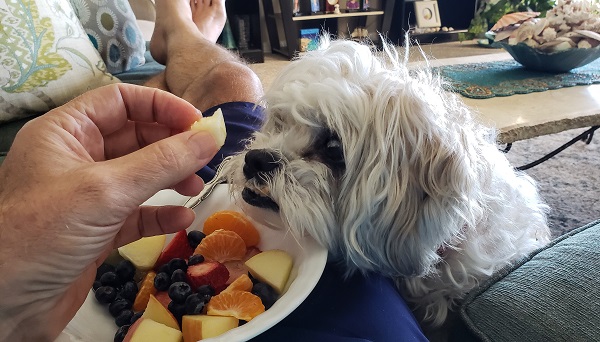
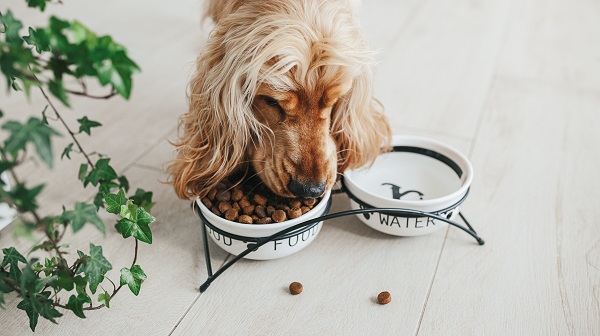

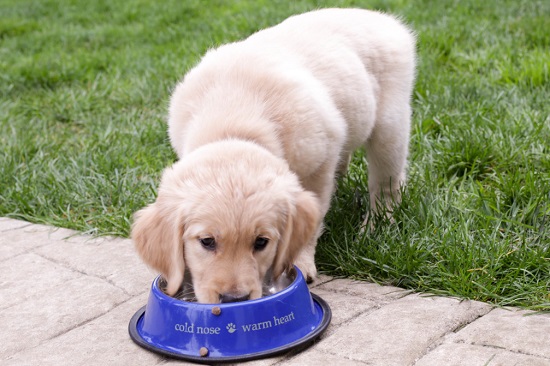

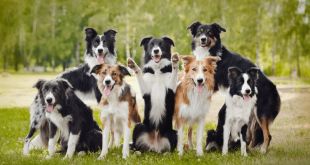

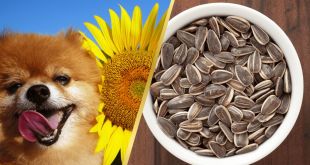
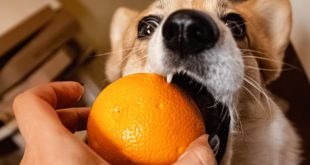












 in Chandigarh, India.
in Chandigarh, India. 

